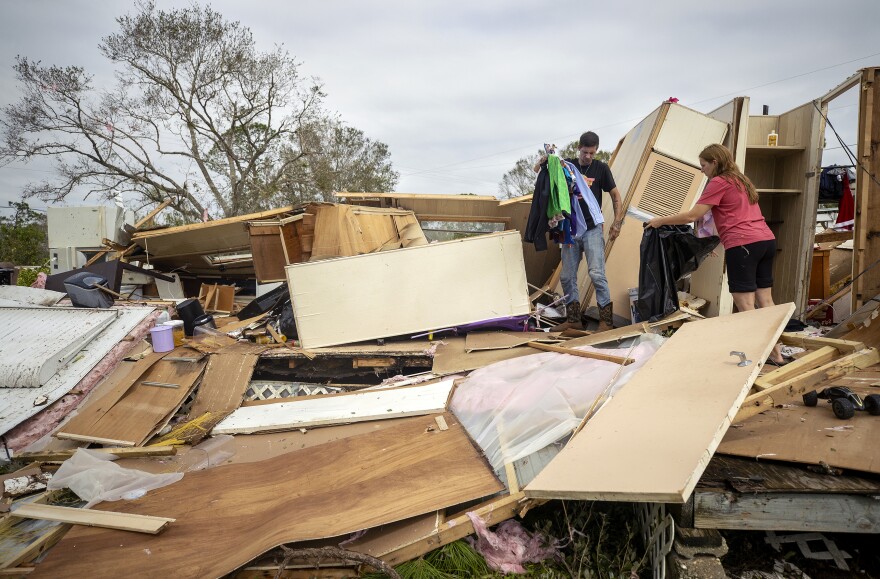TALLAHASSEE — A key senator said Tuesday he does not expect lawmakers to make major property-insurance changes during the 2024 legislative session, as they continue to watch the results of an overhaul passed last year.
“In my opinion, we swung for the fences, and we got a lot done,” Senate Banking and Insurance Chairman Jim Boyd, R-Bradenton, said after his committee received updates about the property-insurance market from state Insurance Commissioner Michael Yaworsky and Citizens Property Insurance President and CEO Tim Cerio.
Boyd said he doesn’t see “any additional big-deal things that we can do” during the 2024 session, while giving time for the changes passed last year to play out. The 2024 session will start in January.
Troubles in the property-insurance market during the past three years have led to many homeowners facing massive rate increases or losing coverage and have spurred a flood of policies into Citizens, which was created as the state’s insurer of last resort. Citizens ended last week with 1.412 million policies, nearly double the 708,919 policies it had on Sept. 30, 2021.
Lawmakers during a special session in December passed wide-ranging changes to try to shore up the market. For example, they tried to shield property insurers from costly lawsuits and took steps to help push policies from Citizens into the private market.
At the time, lawmakers said the changes would likely take 12 to 18 months to filter through the system. Since December, property owners have continued to see increased rates and, in many cases, few choices for coverage.
But Boyd, Yaworsky and Cerio said they see signs of improvement in the industry.
“Everyone is in this together,” Yaworsky told reporters after his presentation to the Banking and Insurance Committee. “It is a very difficult time for Florida homeowners, but the state has enacted significant legislation to address that after years of trying to get it done.”
Yaworsky said, for example, that costs of reinsurance — critical backup insurance that drives a large chunk of homeowners’ bills — did not increase as much as initially feared.
Also, regulators have approved requests from private insurers to take as many as 646,617 policies from Citizens this year. While only a portion of those policies will go into the private market, Yaworsky said the interest in so-called “depopulation” of Citizens is a sign of a healthier market.
Cerio said Citizens had expected it could end 2023 with 1.5 million to 1.7 million policies. But he said it now expects to end the year with about 1.3 million policies.
During the committee meeting, however, concerns about the market remained apparent.
For example, Senate Rules Chairwoman Debbie Mayfield, R-Indialantic, said the majority of calls she gets in her office are related to property insurance. At least some of those concerns involve a lack of competition and coverage choices.
“I can tell you it (coverage) has been shopped, and you can’t find it,” Mayfield said.
Sen. Victor Torres, D-Orlando, asked Yaworsky whether the state would consider a cap on rate increases over the next few years or a moratorium on policies being dropped.
But Yaworsky said a rate cap could lead to some Florida-focused insurers leaving the market or going insolvent. Cerio also said lower rates for Citizens could be a “long way off” because the insurer’s rates are below where they should be.
— News Service broadcast journalist Mike Exline contributed to this report.







